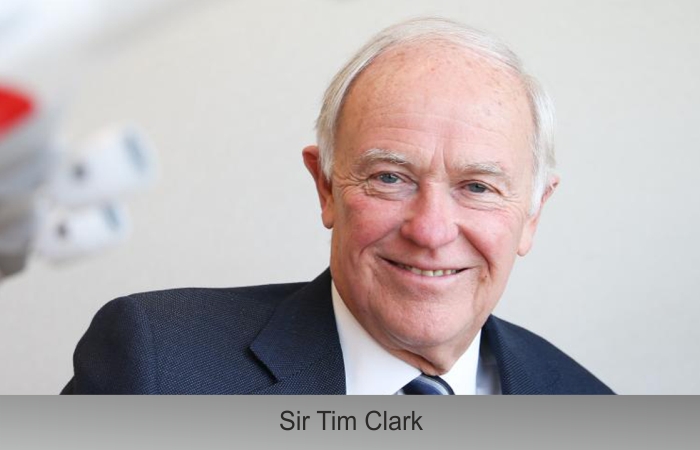In a no-holds-barred interview, Sir Tim Clark, President of 35-year-old Emirates Airlines, shares an update on the airline and his views on the industry. He also talks about the burning topic of the day for aviation – keeping the middle seat empty.
Hazel Jain
Q How is Emirates coping with the current situation?
The airline is currently in suspense. Although a lot of aircraft have been deployed as freighters, passenger operations have been stopped since March 25, 2020. I don’t think I have seen anything like this in my career. We are now faced with big structural problems in the airline industry. Change is afoot and my belief is that there is sufficient resilience in the global economy to take this as long as it doesn’t go on for too long. We were hoping that things might start easing up a bit by second half of May but clearly, they haven’t. We have had some casualties of operations at the moment. It is a step we had to take; we just can’t keep our employees doing nothing for so long and will have to let some of them go, unfortunately.
Q Which airlines do you think will survive this pandemic?
Those airlines that have a lot of domestic operations will be at an advantage. For airlines that are in the medium to long-haul category, it is obviously going to be more difficult. The country-access conditionality and the on-board protocols are all the large unknowns at the moment. So, it makes planning for a resumption quite complicated. We have a 24×7 watch on it as countries start to relax their access requirements. But I see some difficulties as I don’t believe they will open at the pace we would like. I think there will be a degree of what they call the bubble effect, i.e. countries selecting other countries that are relatively COVID-free and therefore allowing services between those countries to resume. But we are still in early days.
Q How will the empty middle-seat affect airline economics?
If we start leaving seats in the economy inventory open or unsold because of physical distancing, we have to be consistent about it. There is no point just leaving the seats empty next to you because the seat behind you will have someone sneezing or coughing. So what it basically means is that you would have to take 50 per cent of your economy inventory out. But the math doesn’t stack up for anybody to do that. The airline business models, whether they are LCC or long-haul, require high volumes at low margins, unfortunately. If you start interdicting this business model then the math starts to become adverse and it becomes more difficult.
Q What is your prediction on the aviation industry recovery?
Eventually we will get over this. But the next six to nine months are going to be tough. My instinct is telling me that if we can get a massive inoculation global programme (much like polio) going by Q1 of 2021, we have a fighting chance. Then we will see things start to come back to normal. Then we will see by summer of next year quite a large uptick in travel both in short-haul and long. And we are ready for that. We can activate our fleet probably within 48 hours if we have to. We are always in the state of readiness. Going into 2023-24, demand will start to come back to normal and Emirates will be able to operate its network as it was and hopefully successfully as it was.
Q How will airlines fill the seats on the A380 in the short term?
Yes, there will be diminished demand. People think that the corporate and business segment will diminish significantly, but I am not of that view. I do believe we will get them back. And an aircraft like the A380 will come back into its own again. They will stop producing them next year, but we will continue to use our fleet meaningfully.
Q What do you think of government bailouts?
Private enterprises that never had any subsidies are now receiving large amounts after the government has realised that they will not survive unless they are bailed out. When that money runs out is anybody’s guess. If you do not get this industry operating quickly, all the money that has gone into those companies is absorbing all the cash obligations. But, it presupposes that you will start to fly profitably, generating positive cash flows in the next few months. I don’t see the scale of these companies meet their cash obligations.
Did you know?
Emirates Airlines is the largest customer for Airbus’ A380 superjumbo jet with a total order of 123 units. The airline is planning to replace the aging giant jetliner with the 777X series.
 TravTalk India Online Magazine
TravTalk India Online Magazine





